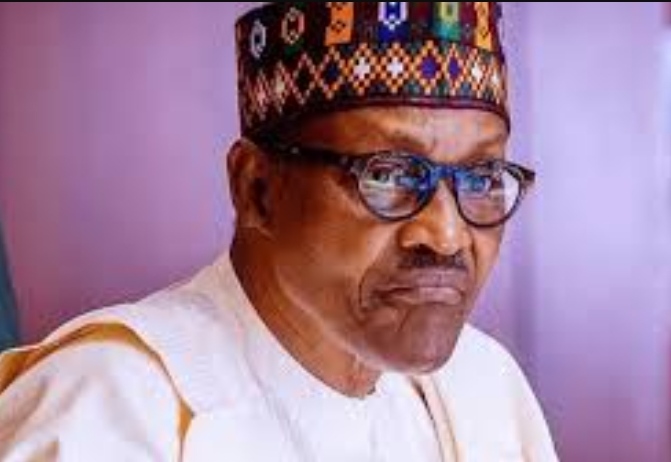By Garba Shehu

Muhammadu Buhari was sworn in as president following a decisive victory in the 2015 presidential election and was re-elected with an even bigger majority for a second consecutive term of office in 2019, underscoring the trust and confidence of the country in his administration.
As he marks his 82nd birthday, it is time to remind ourselves of certain qualities that stand him apart from the crowd.
Buhari is a very different leader with a strong attachment to the weak and poor, dedicated to improving their well-being and alleviating their suffering.
Politics and corruption go hand in hand in many countries, and Nigeria is not an exception. The general perception is that if you are a politician, you must be corrupt.
He is known as “Mai Gaskiya,” the truthful one for his honesty and simple lifestyle.
His campaign focused on a blend of economic development, security and the fight against corruption. His two terms ushered in a paradigm shift in governance with a strong focus on building the country’s long delayed infrastructure and leadership through personal example.
Under Buhari, the country embarked upon remarkable initiatives to address multi dimensional poverty. The country became the first on the continent to have a social security system. Several measures aimed at reducing poverty, the bane of the poor, were introduced through financial inclusion.
Buhari prioritised efforts towards universal health coverage. His administration successfully removed the country’s name from the list of nations with endemic polio.
In 2021, his administration launched a campaign for five million off-grid solar power connections to villages without electricity impacting 20 million Nigerians without power more than 60 years after independence; took reliable, clean energy to the country’s major markets, electrified several federal universities, teaching hospitals and set up a funding scheme for mini grids in 100 hospitals across the country.
Agriculture was very close to the heart of the former president. Not only that he is, himself, a farmer growing crops and tending to livestock,President Buhari launched several initiatives in rice growing and 15 other agricultural communities leading to domestic self-sufficiency in some and boosting the export and increased foreign earnings in others.
Buhari believed that transportation is a key path to the transformation of the country and embarked upon next generation infrastructure reconstructing the nation’s major roads and bridges,airports, inland waterways, the sea ports and significant advances in the development of standard gauge rail.
Under the administration, the country made improvements in the Ease of Doing Business and in the strong belief that the level of science and technology will, not far from now, determine the strength, even the destiny of a country, Buhari ensured a lot of money went to the ministry as well as the research institutions under it throughout the eight years.
The president’s lifetime story, starting in Daura, a semi arid region and now within seizure of the Sahel desert taught him to be deeply passionate about the environment. The thrust of his policy was both reactive and proactive: it is easier to destroy the environment than to rebuild it.
Buhari’s foreign policy initiatives led in many respects to the realisation of the country’s goal as a leading power in the West African subregion and Africa as a whole.
Nigerian leaders are praised while in office and discredited even after tremendous contributions by them after they leave office. Knowing this, President Buhari would rather be silent on the criticism of his administration-much of it unfair- in the belief that the truth, like oil buried under the soil has a way of coming to the top.
To use the words of Leo Tolstoy, two most powerful warriors are patience and time.
I make the admission that in all humans-leaders inclusive-there are limitations and shortcomings. As a leader, Buhari towers above many before him.
The former president said to the hearing of everyone that once he handed over to his successor on that May 29, 2023 he would be as far away from the nation’s capital, Abuja, so as not to cast a shadow over the new administration, to give the space to them to effectively take off and stabilise without distractions. Being willing to renounce power is his extraordinarily admirable trait.
Since leaving office, he visited Abuja just twice, first to officiate at the launching of Femi Adesina’s brilliant book Working With Buhari, and the second time as a guest of President Bola Tinubu when they convened a meeting of the Council of State.
Unlike others, the Nigerian Constitution has created a platform for interaction between the present and the past leaders of the country, the Council of State which is set up to advise the sitting president on some important appointments and on sundry issues affecting the state.
Cooperation between serving and former Nigerian leaders is not new although it is difficult to know how much cooperation goes on between current and former presidents.
General Yakubu Gowon, the oldest surviving former leader, would appear to be the most helpful of all of the nation’s past rulers.
On the other hand since leaving office, first as military leader and subsequently as elected president after two terms, President Olusegun Obasanjo has called and written on every head of state after him to put him to shame or disgrace, and in some cases outrightly asking for his resignation or ouster in the next election.
If President Buhari is not seen going about publicly for a while, it has to do with his expressed wish to be as far away as possible, not to be a distraction to the new administration. He earnestly is sympathetic to Tinubu in his challenging job of reforming the economy, and all the other leaders in expectations of management of citizens, much of which is difficult- if not impossible- to meet. His view that subsides were unsustainable has not changed. But in the remoteness of Daura, he has found the atmosphere for a well-deserved rest, in silence and dignity and away from predatory pressures of Abuja.
Buhari maintains a very simple daily routine of catching up with the news on radio and television each morning, enjoying the company of his grandchildren, meeting with scheduled guests and a one to two hour walk around his expansive farm inspecting crops and livestock. An avid reader who must get all available newspapers, President Buhari now has plenty of time to read and watch his favorite TV shows.
As he marks his 82nd birthday, may he always be remembered and honored.
•Shehu is former presidential spokesperson.


